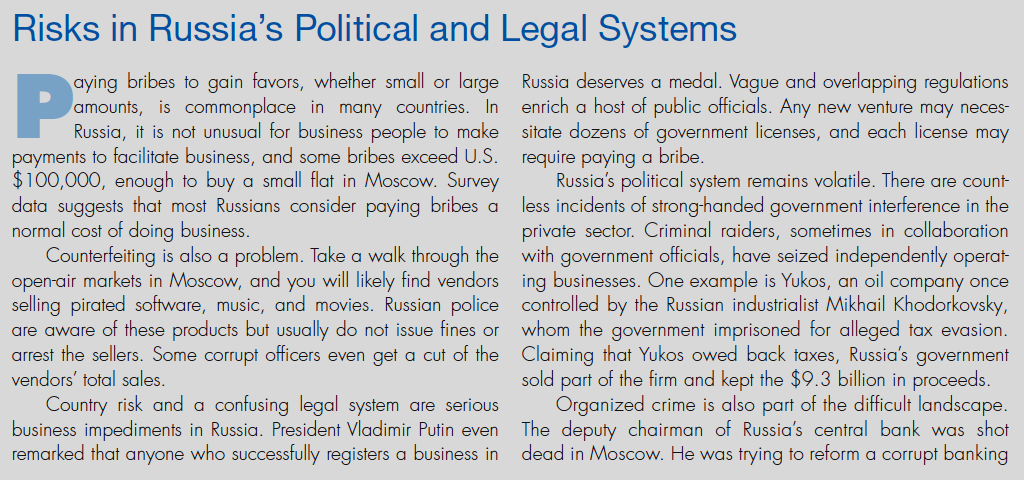Russia’s legal system is a complex blend of civil law and socialist legal traditions, influenced by historical, cultural, and political factors. While significant reforms have been implemented in recent decades, challenges such as corruption, judicial independence, and human rights violations persist.
Key Features of the Russian Legal System
- Civil Law Tradition: Russia’s legal system is primarily based on civil law principles, which emphasize codified laws and judicial interpretation.
- Constitutional Framework: The Constitution of the Russian Federation is the supreme law of the land, outlining the fundamental rights and freedoms of citizens and the structure of government.
- Judicial System: The Russian judicial system comprises a hierarchical structure, with the Supreme Court as the highest judicial body.
- Prosecutorial System: The Prosecutor General’s Office plays a significant role in the legal system, overseeing investigations and prosecutions.
Challenges Facing the Russian Legal System
- Judicial Independence: The independence of the judiciary has been a persistent issue, with concerns about political interference and corruption.
- Human Rights Violations: Human rights abuses, including arbitrary arrests, torture, and unfair trials, remain a problem in Russia.
- Corruption: Corruption is widespread in the Russian legal system, undermining the rule of law and hindering economic development.
- Lack of Legal Certainty: Complex and often contradictory laws and regulations can create uncertainty for businesses and individuals.
Recent Legal Reforms
The Russian government has implemented various legal reforms in recent years, including:
- Judicial Reform: Efforts to improve the independence and efficiency of the judiciary.
- Criminal Law Reform: Amendments to the Criminal Code to address emerging challenges and align with international standards.
- Civil Code Reform: Modernization of the Civil Code to promote economic development and protect property rights.
- Anti-Corruption Measures: Increased efforts to combat corruption and strengthen law enforcement.
International Legal Cooperation
Russia is a member of various international organizations, including the United Nations and the Council of Europe. It participates in international legal cooperation, including treaty negotiations, extradition, and mutual legal assistance. However, Russia’s international legal reputation has been tarnished by its human rights record and its involvement in geopolitical conflicts.
The Russian legal system continues to evolve, and its future development will depend on the government’s commitment to rule of law, human rights, and judicial independence. While significant challenges remain, there is potential for further reforms and improvements.

Leave a Reply